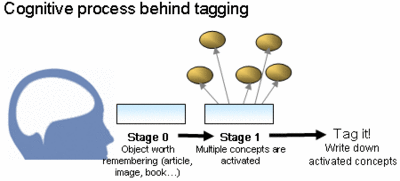Guess-the-Google

OK, this Guess-the-Google game may be a bit of a time waster, but I think it's also interesting to try and test your skill at matching the Google image collages to search terms.


Will Richardson has put together a great list he calls "a basic reading list for people interested in getting their brains around the Read/Write Web and the changes it's bringing about specifically related to education." This looks like a great start to me!
This list of free software for PC users has been making the circuit around the blogosphere lately...
An interesting article from MSNBC on the use of iPods in elementary school classrooms.
Some great thoughts on a personal history of working with media-rich learning from Clive Shepherd
Some interesting thoughts on this topic from Jonathan Korman at Cooper Design. (Thanks, elearningpost for the link)
For those of you in the TO class who are looking into Furl and del.icio.us this week, here are a few posts you might find useful:
Whether or not you fully agree with this list from T.H.E. Journal, you'll probably find at least some of these resources useful

I'm so jealous... I've been wanting to incorporate Simcity into a class since I first set eyes on the program years ago. At least I can live vicariously though others...
 I've been doing a lot of thinking lately about tagging, categorization, and organization - particularly since working with a new LMS has forced me to rework some of my standard organization schemes for resources and links for my online classes.
I've been doing a lot of thinking lately about tagging, categorization, and organization - particularly since working with a new LMS has forced me to rework some of my standard organization schemes for resources and links for my online classes.Keeping up to date on information in this constantly-changing field is always a challenge. The Keeping Up Web Site is designed to
"help library and information science professionals, information technologists, instructional technologists, and other academic technology support professionals develop and maintain a program of self-guided professional development. A central, guiding premise of this web site is that academic librarians and technology professionals must go beyond the constraints of their own literature to really keep up and maintain their myriad skills and diversified knowledge base."
A great post at Pedablogue showing some of the thought behind crafting meaningful, measurable objectives for complex learning tasks
Some good resources and basic information on blogs from this course site.
Some good free resources for finding out who's looking at your blog. (Both sites are web-based. They require free registration and the inclusion of some simple code and a site button in your HTML.)

OLDaily provides a good summary of links and edublogger reactions
According to this BBC News article, the new video iPod will be available in the US this week.
Very much still relevant to discussions of LMSs is this article on managed learning from George Siemens at elearnspace.
This post fits in nicely with the discussion in the TO class on cheating in the online classroom. I must say that in my experience, the "Google test" he talks about works pretty well (this happens all the time in almost every class I teach).
Research Papers a la Wikipedia:
(From Kairosnews, after the Esquire article posted to news.com)
This article is a good followup to our discussion in the TO class this week on formal vs. informal learning
Yikes.... WebCT & Blackboard are merging? (Thanks, EdTechPost for the link)
Still catching up on my "Learning Circuits" reading from over the summer... this article presents a mathematical model to help calculate the key cost components of different delivery methods
Good basic article from Learning Circuits - part of a series on technology trends - providing an explanation of podcasting, with a focus on its uses in learning, and links to more information.
This online comparison tool from EduTools is a great resource that's been around for some time. This is a great way to walk through various systems and get a handle on what the differences are.
An interesting little bit of history on what happened with the venture that gave rise to the iAuthor program.
Lots of discussion in September on the DEOS-L mailing list with resources for comparing these systems. (scroll down)
From the New South Wales web site - Exemplar of what can happen if you build in too much flexibility too many options in course design.